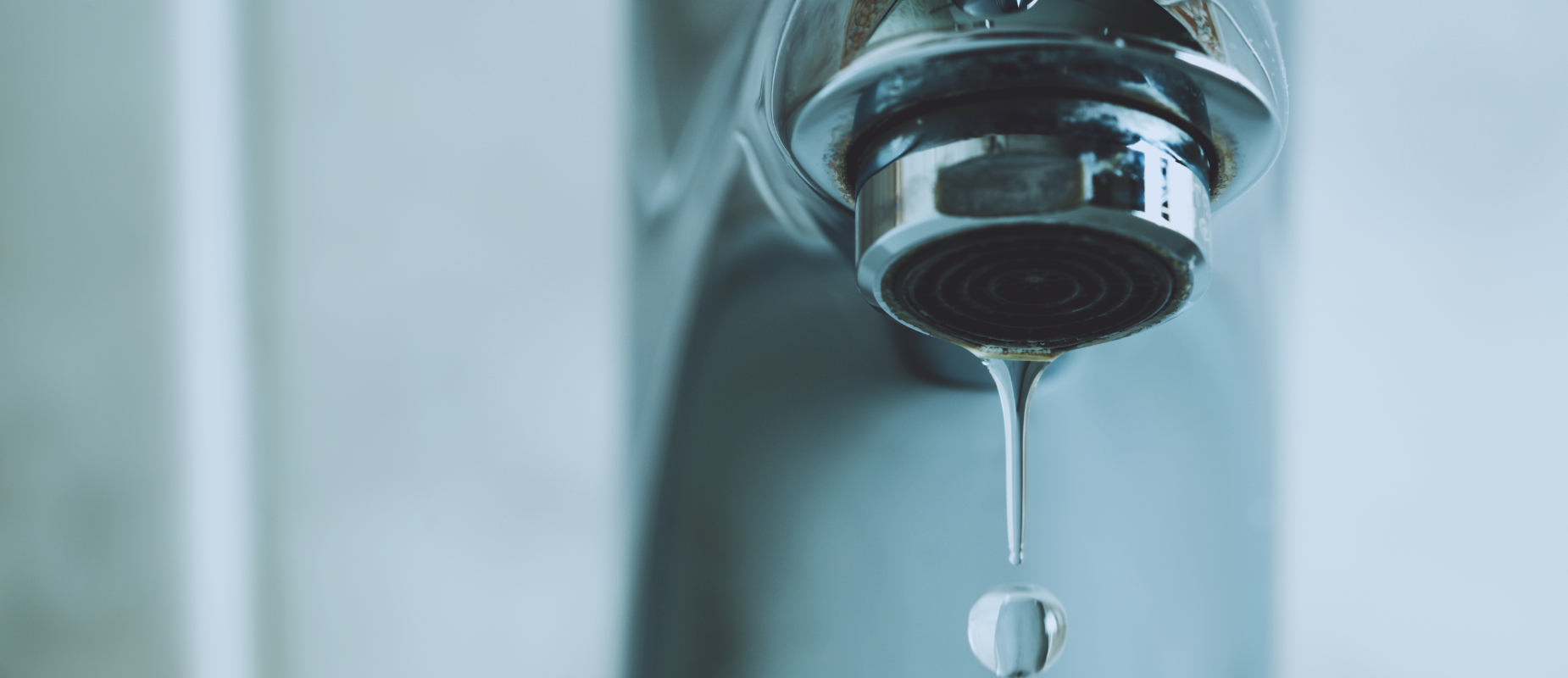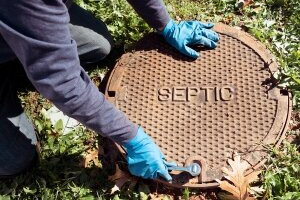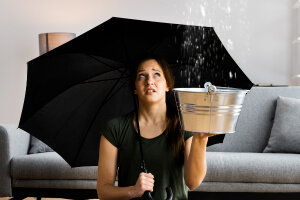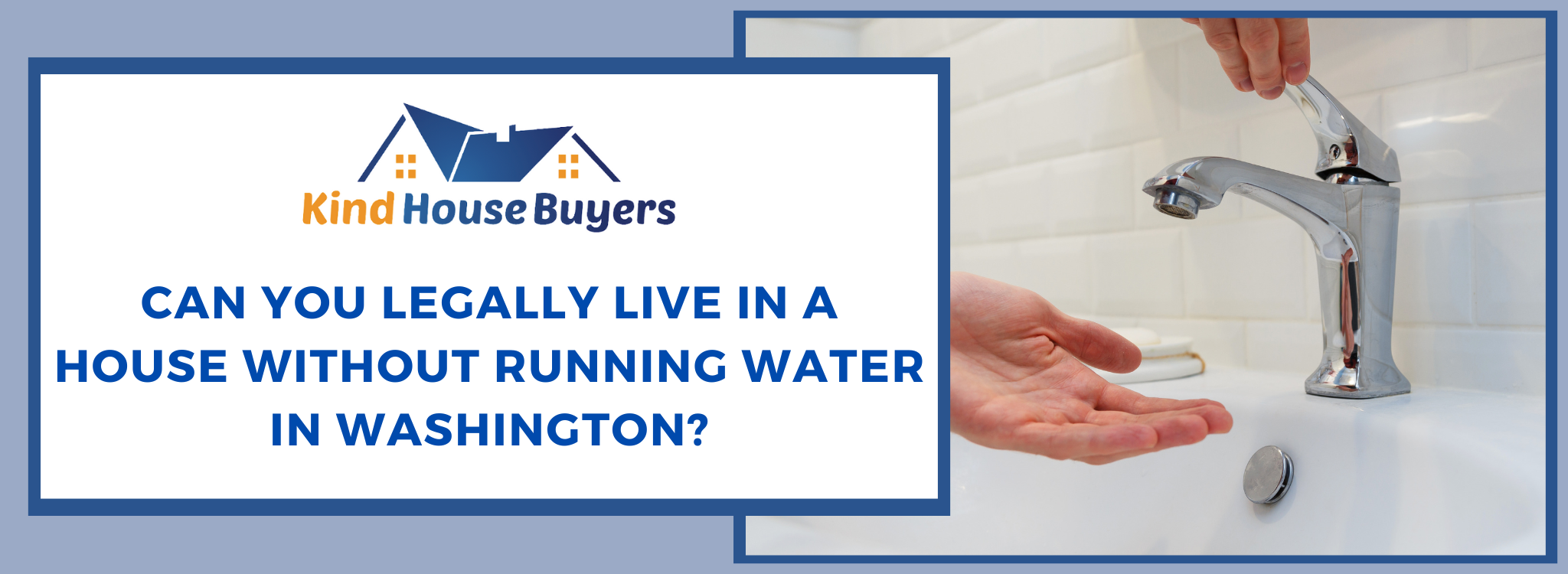
Can You Legally Live in a House Without Running Water in Washington?
Living off the grid is an attractive prospect for some, and it’s not hard to see why.
By living off-grid, you’re not hooked up to any municipal energy sources, you effectively live without running water or electricity at your fingertips. This lifestyle gives you complete independence and control over your water, waste, and power management, and with the current technological innovations, it’s possible for anyone to give it a try. Solar energy can provide your electricity needs; and for water, you can harvest the rain or source it from a nearby lake or river. For your heating requirements, you can use wood-burning stoves. Also, since you’re not reliant on municipal sources, this means you have no monthly bills to worry about!
But, before you pack up and live your modern-day pioneer dreams, you must completely understand and comply with the legal requirements of such a lifestyle to avoid hefty fines and headaches down the line.
Why do people choose to live off-grid?
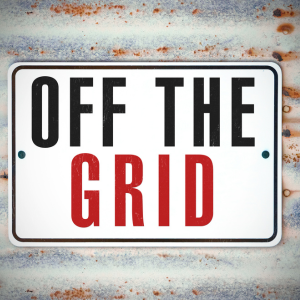
Certain people prefer this because it allows them to live a sustainable way of life. Off-grid locations are usually away from urban areas and the creature comforts that come with it. If something breaks, you can’t just throw it in the garbage, since there is no trash collection to speak of; you are responsible for your own waste management. You also learn to do the repairs yourself because there isn’t anyone else to call. Additionally, there isn’t a grocery store for miles, so you must grow your own food and live off the land, learning full independence and self-sufficiency along the way.
Another reason for choosing this lifestyle is the desire to minimize your carbon footprint. By utilizing renewable energy sources such as wind and sunlight, you’re able to do your part in helping the environment. What’s more, the government also gives a juicy 30% tax credit when you install your own photovoltaic system! As of 2024, around 5% of all houses in the United States are equipped with solar panels, and growing every year.
And finally, building a house away from civilization allows you to walk away from the daily stresses of city living and connect you with nature. While this type of lifestyle is filled with challenges, especially since one has to contend with both weather and wildlife, people report that they found fulfillment that they haven’t found anywhere else.
What are the Legal Requirements for Living in a House Without Running Water?
Technically, it is not illegal to live off-grid nor live without running water in the United States. However, depending on the state you live in, there are certain regulations you must follow or you will be slapped with a heavy fine, and sometimes even jail time!
To start, you should know about zoning ordinances in your state or county. The local government designates specific uses for lands within their jurisdiction. Thus, some areas, no matter how remote, belong to the national park system and therefore it is forbidden to build anything there; others are set aside for industrial developments, and the rest have commercial and residential uses. Therefore, to stay on the right side of the law, make sure to perform due diligence.
Once you know for sure that you’re compliant with the zoning, you must check your local health department’s regulations regarding sanitation. Since you won’t be connected to any municipal utilities, there are very specific requirements to follow when building your septic tank to make sure it’s safe for you and for the environment at large. Improperly constructed septic tanks can leak into the surrounding soil and contaminate the groundwater which can affect the local community and wildlife.
Afterwards, you can get the rest of the permits and licenses necessary to construct your off-grid home.
For a rental property though, it’s another matter. For example, a landlord cannot let you go without running water, because it is their responsibility to provide you with a safe and livable home. This basic right, called the implied warranty of habitability, can never be waived under any circumstance. If a landlord fails this, tenants can sue, withhold rent, or break the lease without incurring penalties.
Benefits of Having 24/7 Access to Potable Water
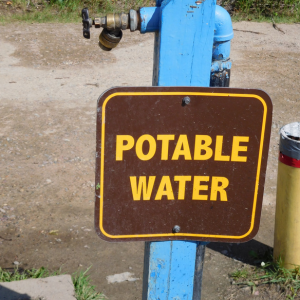
Since indoor plumbing was introduced in the United States in the mid-1850’s, access to clean water has become indispensable in daily life. Today, in a typical home, taps and toilets are supplied by water supply lines connected to large water mains carrying pressurized potable water. On the other hand, waste water is channeled through the septic system towards municipal sewage pipes leading to a sewage treatment plant before being discharged safely back to the sea or treated further to be reused.
Here are some benefits of readily-available clean water:
Sanitation
Before the advent of indoor plumbing, cholera, dysentery, typhoid, and other waterborne diseases killed large swathes of the world population. It was not until the mid-1800’s that people realized hand washing prevented the spread of disease. Back then, even surgeons never washed their hands before operating on a patient, so patients with weaker immune systems ended up dying of infection later on. Ever since hygiene and healthcare have been found to be intricately linked, significantly fewer people die of infections year after year.
Additionally, running water is needed in keeping your surroundings clean. Germs, fungi, and mold thrive in filthy places, bringing with them a whole host of illnesses.
Nutrition
A glass of water contains small amounts of essential minerals such as sodium, calcium, magnesium, iron, and potassium. Ever since we were children, it has been drilled to us that a person should drink between 6-8 glasses of water each day to realize its numerous health benefits such as: regulating body temperature, lubricating joints, protecting your body’s sensitive organs, maintaining the correct blood pressure, and facilitating elimination of body wastes.
Hydration
Water is absolutely essential to life that you’d die far sooner of dehydration before you’d starve to death. In warmer climates, if you don’t get enough water, your core temperature may rise uncontrollably, resulting in hyperthermia and even death if not acted upon quickly.
Peace of Mind
It’s difficult to imagine life without running water within reach. Consider just how frequently we use water and the activities we use it for: cleaning, cooking, drinking, bathing, and many more. We sleep soundly every day knowing that water is available at the turn of the faucet.
Risks of Living Without Water in the Home
Even today, millions of Americans live without access to running water. Reasons for this include the exhaustion and contamination of groundwater reserves, financial constraints, and aging infrastructure which can no longer accommodate the growing demand. Unfortunately, when living without clean water and without taking the steps to address it, we expose ourselves to outsize risks which include:
Cross Contamination and Spread of Diseases
The inability to keep your surroundings clean owing to the lack of water can lead to cross contamination and the spread of diseases. For example, improperly washed kitchen utensils during food preparation can retain germs and bacteria from raw meat which can lead to food poisoning and the like.
Furthermore, if there is an absence of water supply lines, then there is an absence of sanitary systems as well, so wastes are left out in the open which can cause the groundwater to be contaminated, and thus, the vicious cycle of contamination and disease is perpetuated.
Lack of Hygiene
Cleanliness and health go hand in hand. Lack of hygiene can lead to skin diseases, allergies, and a slew of health complications caused by infrequent bathing or showering.
Increased Stress
Filthy surroundings and health problems can have a heavy toll on the mental health of people living in a home without running water. This increased stress can bring with it a plethora of health issues such as heart problems.
Evidently, it is near impossible to live without running water. It is so important that the United Nations Universal Declaration of Human Rights has enshrined access to water as one of the basic rights. If this is the case, then you might wonder if our building code accords the same importance to water with regards to what is considered ‘habitable’.
Minimum Requirements for Safe Living Conditions

In Washington, the minimum criteria for safe living conditions must meet the standards set forth in the Minimum Property Standards by the Department of Housing and Urban Development (HUD). The general acceptability criteria for houses are as follows:
- free from hazards which can endanger the health and safety of the occupants, regardless if the occupants are tenants or homeowners
- have a water closet, lavatory, and a bath tub or a shower
- have doors with a minimum dimension of 3 ft by 6 ft 8 inches
- constructed using durable materials which are weather-resistant and reasonably economical and easy to maintain
- adequately insulated to conserve heat
Based on the second criteria, it is implied that running water must be available at all times, because bathroom fixtures won’t function correctly and may even be damaged when it isn’t connected to a water line. Therefore, the local government can deem the house as unfit to live in, which may lead to it being condemned.
But then, if this is the case, how does it square with the legality of living off-grid wherein the property isn’t connected to any utility, you might ask? Before delving into this question, we must first know what constitutes condemnation.
Grounds for Condemning a House
Legally speaking, condemnation is a process in which the government exercises its powers of eminent domain to acquire private property for public use. In the case of an unsafe house, the municipality may seize it to protect the public. Even though the house lacks a connection to the water mains, it doesn’t automatically mean that it is inherently dangerous. The occupants may have alternative water sources such as a nearby river, for instance.
Here are commonly cited reasons on why a building official would condemn a house:
- presence of dangerous substances such as lead paint or asbestos
- presence of black mold
- general disrepair such as collapsing roof, or sagging rafters
- structural issues such as major cracks in the foundation and termite damage
- unsanitary living conditions such as those found in hoarder houses, or a broken septic system
- building code violations and unpermitted work
When a house is condemned, homeowners can either contest this classification or sell the property to the government at fair market value.
What Happens If You Live in a Condemned House?
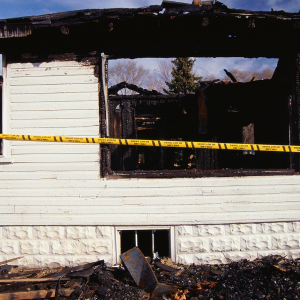
It is illegal to live in a condemned house. Depending on the severity of the house’s condition, the government may allow you some leeway to do the repairs yourself. If the repairs are successful, the house will be inspected and a certificate of occupancy will be issued. The ‘condemned’ status will be rescinded and you can go on living in it.
However, if the damage is deemed to extensive and hazardous, they will order your eviction and plaster multiple ‘no trespassing’ signs around the house to warn the public. The municipality may also ‘winterize’ the property–that is, turn off the gas, electricity, and water, to prevent further damage which may arise from frozen water pipes. If you insist on living in it despite the order to vacate, and the government finds out, it could mean heavy fines.
What are Alternative Water Sources?
Living off-grid never meant you have to live without running water. You just have to do the added research and legwork in seeking out alternative sources for your hydration needs. Here are some methods of obtaining water resources in lieu of being connected to the grid:
Harvested Rainwater
You can install catchment tanks to gather rainwater. Usually, it is connected to your gutters and downspouts.
Desalinated Water
If you live near the coast, you can desalinate–that is, remove the salt–the seawater so you’ll have water available for drinking. The drawback to this is the high energy requirement which requires generators, and thus, fossil fuels, which can run counter to the ethos of off-grid living. Thankfully, sustainable off-grid desalination processes are currently being developed.
Nearby Body of Water
The United States possess over 3 million miles of rivers and streams, therefore, finding a water source while living far from civilization isn’t too difficult. You can then install a large pipe and a jet pump to connect your house directly to the source. Needless to say, this requires a permit, so be sure to check local guidelines.
Well Water
If your home already has a drilled well or you have obtained a permit for one, you can install a submersible pump and collect water into a pressure tank to direct it where it’s needed inside your house.
For all of the above sources, your main supply pipe should be sufficiently insulated to prevent the water inside from freezing during winter which can cause it to burst and destroy all your hard work. Additionally, the harvested water isn’t safe enough to drink yet. You have to invest in a purification and filtration system to make it potable. It is worthwhile to invest in such a system as it could spare you from expensive repair costs down the line, because when raw water is properly filtered, it prevents sediment buildup in your pipes and fixtures.
Finally, even if your home is built on the outskirts of the city, this doesn’t mean you’re exempt from following building codes. You still have to comply with the rules such as using lead-free piping.
Costs Associated in Living Without Running Water in Washington
At first glance, living off-grid is attractive financially. Think how much you can save in rent and your monthly utility bills! Those savings can go a long way for enjoying life and your eventual retirement.
But, let’s pause for a minute and consider the costs associated in choosing this lifestyle.
Washington state, with its vast wilderness areas, agreeable weather, and beautiful landscapes has plenty of land suitable for living off the grid. The abundance of lakes and rivers also mean that sourcing your water won’t pose a problem. Nevertheless, you must be prepared to shell out a sizable amount of money to set things up and successfully transition into this lifestyle. Here’s approximately how much you should budget:
- Photovoltaic system – $5,000
- Water tanks – $1,500
- Water-free, compost toilet – $2,200
- Water Heater – $750
- Wood pellet heater – $1,000
- Septic tank – $3,600-$10,000
The above estimates are only to supply your water and energy needs. Depending on your setup, it can cost more, or even less. But the good news is that the savings in rent and utilities eventually cover these initial costs!
Options in Selling a House Without Clean Running Water in Washington
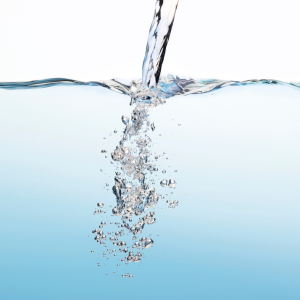
The steps in selling a house usually go like this: list it online, wait for offers, choose and accept an offer that you think is best, and finally close on the sale. Keys and money change hands, and both parties walk away satisfied.
But that’s hardly the case if your house has problems–as is often the case. Running water is a must-have in a home, this issue may be too big for you to handle.
Can you even find a buyer? How would you even advertise your listing?
Those questions can cause you to panic, because uncertainty begets more uncertainty. To avoid that, let’s take it one step at a time.
When selling a house, you must first know what you want. Which of these do you want more: sell for as much as you can, or sell as fast as you can? The way you answer dictates your strategy during the sale.
Option #1: Install Indoor Plumbing Prior to Selling
If you want to get top dollar for your property, then it is recommended that you fix all issues before selling. And yes, that includes installing all the plumbing required to get it functional and up to code. This course of action requires time and money, as getting new pipes installed can range between three weeks to a few months. While you’re at it, you can also consider rehabilitating the rest of the house, but be sure to focus on renovations that would net you the greatest returns such as:
- garage door replacement – on average, it will cost $4,500 but add $8,700 to the selling price which is nearly double the amount you invested
- front door replacement – an outlay of $2,300 will return $4,400, again double in value
- cultured stone veneer – this can improve your home’s curb appeal, catching the eye of potential buyers and netting you more offers. The investment is sizable at around $11,000 but it adds $17,000 to your home value
Depending on your budget, you can also consider bathroom and kitchen remodels since you’re already working on the plumbing for those areas. If you’re tight on cash, look into whether you qualify for FHA loans.
However, you must remember that with every investment, it carries with it some risks. Even though it’s assured that you’ll be able to sell for a much higher price when doing the repairs first, there’s no guarantee that you’d be able to completely recoup this upfront cost. At the end of the day, it’s the market which will decide how much you’d be able to sell your house for, so if this doesn’t seem like a good bet to you, then you can just sell your home in as is condition.
Option #2: Sell As Is
Selling as is means exactly what it says on the tin.
It can be as simple as cleaning out all your personal belongings, putting them into boxes, and handing the keys to the buyer. You forego even the most minor cosmetic repairs. You don’t even need to replace busted light bulbs. But the biggest advantage of doing this? You don’t need to wait around for the repairs to be done before putting your home up for sale.
You can sell fast and keep all that repair money in your pocket at the same time.
The drawback is you’d sell for below market value. And you’d only be able to sell to a cash buyer or an investor, so you get less offers too. Financed buyers are no longer in the running since no lender would approve a mortgage on a house that is rife with issues.
In any case, selling for cash means selling fast. And you know what they say about time and money, right? Time saved is money saved, so in the end you still walk away happy.
Tips and Things to Consider When Selling a House Without Running Water
Disclose the Issues
If your property has been without water for a long time, chances are this isn’t the only issue. The best course of action for you is to have a pre-listing inspection so that you get a complete picture of what’s going on in the house you’re selling. Afterwards, once you have the inspection report, you can decide whether you’re going to sell as-is, effectively passing on all the work to your buyer. Since the house you’re selling won’t be usable for a while, as the required repairs will take time and money to accomplish, you have to set a realistic price for it.
Price Realistically

When setting a price, it’s good to have a baseline. Check comparable properties (“comps”) in your neighborhood–that is houses that have approximately the same characteristics and features as yours, and see how much they’re selling for. Since you already have an inspection report, you can then estimate how much the repairs are going to cost, so you can maybe take them off your asking price.
Also, it’s a good idea to have some buffer for negotiation, as cash buyers might give you offers lower than what you had in mind. If you leave some room for negotiation, you’d be able to counteroffer.
Decide Whether You’d Fix the Issue or Not
Before you get the ball rolling on the home sale process, decide if you’re going to fix the problem or not, because that would dictate how you’d market your house. This way, you also won’t be swayed at the negotiation table and be forced to accept a lowball offer but still have to deal with the issue yourself.
Consider Offering Repair Credits to the Buyer
If you’re in a rush to sell and you didn’t have the time to book an inspection yourself, you can list your home and offer repair credits upfront. Once you have a serious buyer, they’re certainly going to have it professionally inspected. Once the results come back, you can both hammer out the details of the credit, leading to greater accuracy.
Frequently Asked Questions: Living in a Building Without Water
Is the Landlord Required to Provide Tenants with Access to Clean Water?
Landlords are obliged to maintain and keep the rental property up to code. This includes the responsibility to supply heat, electricity, and clean, running water. If the landlord fails in his duties, the tenant has the following rights:
- terminate the lease agreement after giving notice without being penalized;
- initiate court proceedings against the landlord;
- perform limited repairs and deduct the cost from the rent.
Can You Legally Live Off the Grid Without Water and Electricity?
Yes, you can legally live off the grid without being connected to water and electricity. You can source your power preferably from renewable sources such as wind and sunlight; or from fossil fuels, if you opt to use diesel-powered generators. For your water, you can either source it from a nearby stream, harvest storm water, desalinate seawater, or dig a well.
Is It Possible to Live in a House That Does Not Rely on a Municipal Water System?
Yes, such a house is called a freestanding running water home because it is not reliant on the public water system. Water is obtained from natural sources such as rainwater, rivers, or springs.
How Do You Find Clean Water When Living Off-grid?
If you live off-grid in the middle of nowhere surrounded by virgin forests, you can reasonably expect the water in the nearby stream to be clean. However that doesn’t mean you can drink it straight from the source. In other words, you don’t just find clean water–you have to make it.
According to the Centers for Disease Control and Prevention (CDC), simply boiling the water can kill germs and parasites and make it safe to drink. Alternatively, you can also use chemical disinfectants such as bleach, iodine, or chlorine dioxide tablets. Just make sure to let it stand half an hour before drinking it. Another way of purifying water is by using ultraviolet (UV) light. A word of caution though, if the water is cloudy, it will block the light, rendering it ineffective. Therefore you must filter it and let it settle before using the UV light to kill the germs.
What are Some Options for People Without Access to Running Water?
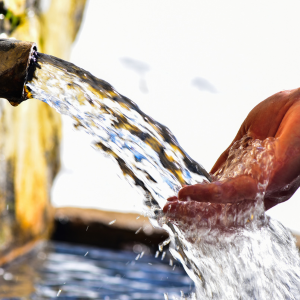
Sometimes, people find themselves with no access to running water for many reasons: from forgetting to pay the bill to damaged water supply lines following a storm . In cases where it can’t be readily remedied, what can you do? Here are some tips for surviving days when taps suddenly run dry:
- Use no-rinse baby wipes to keep yourself clean and comfortable.
- Use disposable cups, plates, and utensils for the meantime since you won’t be able to do the dishes.
- Make sure to keep your hands clean using hand sanitizers or alcohol to avoid cross-contamination.
- Avoid throwing toilet paper into the toilet to avoid clogging it up.
- If there’s notice of an impending water shutoff, fill all available containers, including your bathtub, with water
Is Having a Septic Tank a Legal Requirement in Washington?
Septic systems are required in areas without centralized sewer systems, according to the Washington State Department of Health. Hence, it follows that for off-grid living, you have to have your own septic tank system installed. The septic tank works by treating wastewater in its chambers before ultimately dispersing it into the surrounding soil, called the drain field.
In building a septic tank, you must follow specifications set forth in the building code to avoid leakage and contamination of the groundwater in the area. You must also maintain it to:
- avoid costly repairs in the future
- avoid poisoning the local community since household wastewater is laden with disease-causing germs and bacteria
- avoid lowering your property value
What’s the Possible Impact of Not Having Running Water in my Home Sale?
Potential buyers, especially first-time homeowners, expect a move-in ready home with everything in order. And one of the baseline requirements is running water. Thus, if it isn’t available you can expect to sell at a discount. In most cases, buyers are turned off entirely since they don’t want to deal with that headache. Mortgage lenders and banks won’t finance a home purchase if the real estate in question lacks this basic necessity. That takes financed prospective buyers off the market. End result? A very shallow pool of buyers who can only pay cash and who wouldn’t mind the extra legwork of getting the plumbing system up and running.
In summary, if the property you’re selling doesn’t have running water, you will:
- be forced to settle for a lower selling price;
- have a difficult time marketing your home; and,
- take a long time before you can sell your home.
Why is it Hard to Sell a House Without Running Water?
In this day and age, working utilities such as heating, electricity, and clean water is a basic expectation when purchasing a property. If indoor plumbing will only be added later on, it would be a difficult and time-consuming job, which involves tearing out the walls to install the pipes. If you opt not to do that, not only are exposed pipes unsightly, they are also prone to being damaged and you can end up flooding your home.
Furthermore, the cost of setting up a water supply can be up to $17,500. Not exactly chump change, because it includes:
- hiring a licensed and insured plumber
- installing water mains from the street to your home, which involves some excavation
- installing piping throughout the house
- getting permits and licenses from the local government
That’s a hassle that few buyers are willing to deal with.
Closing Thoughts: Selling a House Without Running Water
Selling a house that doesn’t have running water may be hard, but it’s not impossible. You can choose to remedy the situation by hiring professionals to install the plumbing prior to selling, or you can just choose to sell as is.
When selling as is, a cash buyer like us is the way to go. Here at the Kind House Buyers, we buy houses in Washington in any condition! We don’t shy away from difficult projects, so skip the hassles, just sell to us as is, and let us do all the heavy lifting!
Once you fill in the form with your address, email, and phone number, expect to receive a fair, no-obligation cash offer from us! If you like what we offer, we can go ahead and close on the date of your choosing. Closing costs are on us, so that takes a load off your worries too!
What are you waiting for? If you have questions, you can easily reach us at (253) 216-2497, look for Keith or Krixelle and we’d love to talk with you!
Other Blog Articles You May Enjoy
Sell your Washington house without a Realtor 75% Faster
No Hidden Fees or Commissions. Sell Your House As-Is And Close On The Day Of Your Choice. Fill Out The Form Below.

Author: Keith Sant
Keith Sant is a real estate investor and entrepreneur who enjoys helping others by sharing useful real estate information. Keith’s goal is to educate home sellers so they can make the best decisions for their real estate problems. When Keith is not working, he enjoys cycling and traveling with his wife, Krixelle.
He has been featured on numerous new and real estate platforms, including Zillow, HomeLight, Better Homes & Gardens, Realtor.com, MSN, and Yahoo Finance.

